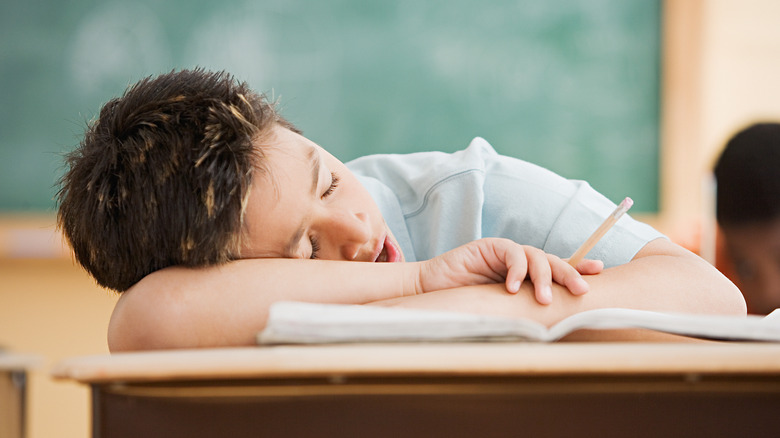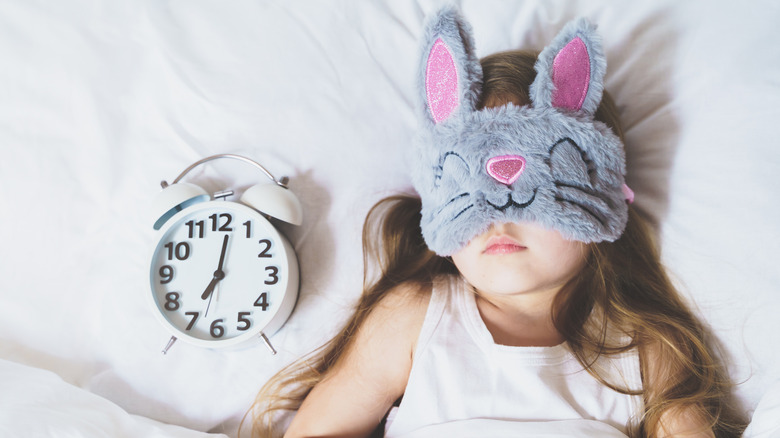How To Tell If Your Child Is Sleep-Deprived, According To A Sleep Expert
Sleep is critical in helping you think more clearly, balancing your immune system, settling your blood pressure, and regulating your hormones, according to the National Heart, Lung, and Blood Institute. Sleep is especially important in supporting children's growth and development, and children need more sleep than adults. Those who are getting less than their recommended hours of sleep could show signs of sleep deprivation, according to Dr. Thomas Kilkenny, director of the Institute of Sleep Medicine at Staten Island University Hospital. In a Health Digest exclusive, Dr. Kilkenny tells us how we can tell if our children are sleep-deprived and how we can help them get more sleep.
Even though an adult might show signs of sleep deprivation by being tired during the day, Kilkenny says children show their symptoms differently. "Symptoms often include irritability, overactivity, impatience, or crankiness," Dr. Kilkenny said. "Difficulty getting up in the morning is a common sign. Eventually, the child will start having lateness at school and issues with school lateness and absenteeism."
How to handle a child's sleep deprivation
Dr. Kilkenny says that the amount of sleep a child needs depends on age. Including naps, toddlers need 11-14 hours. Children aged 3 to 5 should aim for 10-13 hours of sleep, including naps. Children ages 6 to 14 should get between 9 and 12 hours of sleep, and teenagers up to 17 years should sleep 8 to 10 hours every night.
If you notice your child is sleep-deprived, a visit to a doctor can rule out any possible medical issues. "Disorders such as sleep apnea, night terrors, nocturnal enuresis (bedwetting) can all interfere with the quality of a child's sleep, leading to excessive sleepiness," Dr. Kilkenny said. You should also look out for snoring, teeth grinding, sleepwalking, or talking during sleep, because they could be symptoms of an underlying condition.
Dr. Kilkenny suggests establishing a set of daily sleep hygiene rules, which can include avoiding late-day naps or staying away from caffeine and sugar in the evenings. He also suggests avoiding exercise or physical activities a few hours before bedtime. "The parents must enforce a routine prior to bedtime where the child does quiet activities such as watching TV, reading, or listening to music," Dr. Kilkenny said. He adds that it's ideal if this quiet time in the evening is in a dimly lit room. Finally, Dr. Kilkenny says the bedroom should be reserved for sleeping rather than eating, watching TV, or communicating with friends.


